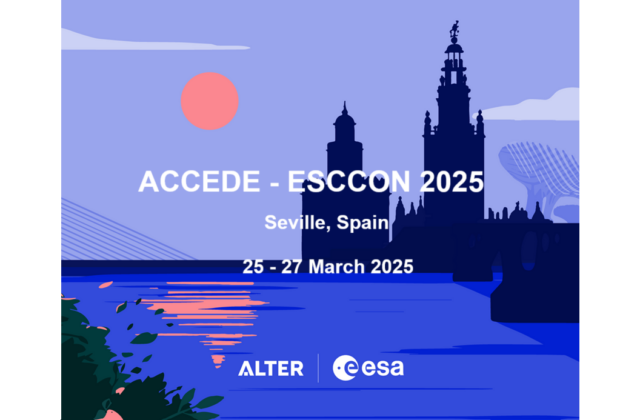Date: 25th – 27th March 2025
Location: Seville, Spain
Complete programm of the event here.
The two main European events devoted to the use of EEE components in space application, ACCEDE (Assessment of Commercial Components Enabling Disruptive space Electronics) and ESCCON (The European Space Components Conference) merge in Seville, combining the trends in using and validating COTS for space with the evolution and activities being developed and implemented under the ESCC system.
In the frame of LETTERSS project, two presentations will be given :
– One general presentation of the project given by M. Agustin Coello-Vera
– One presentation on the Tin Whiskers Challenge by Dr. Guillaume Meyer

Abstract of the presentation of LETTERSS project given by M. Agustin Coelle Vera:
Due to the global transition of the electronics industry towards lead-free solutions, the space industry increasingly faces challenges related to the unavoidable use of Electrical, Electronic, and Electromechanical (EEE) parts with lead-free finishes, necessitating effective risk management strategies. The rising use of commercial off-the-shelf (COTS) components, especially in the rapidly growing constellation market sector, has led to the European space industry utilizing a significant number of components with lead-free finishes, even when high-reliability leaded versions are available. Although the space sector is exempt from RoHS, it is not from REACH and these regulations coupled with market dynamics may eventually affect the availability of leaded solder paste.
A new project, LETTERSS (Lead-free Transition for the European Space Sector, 101135428), has received funding from the EU (Space R&D Programme, HORIZON-CL4-2023-SPACE-01 call) to address the main challenges of the Pb-free transition for the European Space Sector described in the Roadmap delivered in 2020 by the ESCC Task Force. The methodologies used in the Project to overcome the current challenges that impede the broader use of Commercial Off-The-Shelf (COTS) components in space projects with existing qualified assembly processes based on leaded solders will be discussed. Additionally, there will be a presentation on the comprehensive evaluation of two lead-free solders that show promise for the Space Sector, including reliability model development.
Abstract of Dr. Guillaume Meyer’s presentation: the Tin Whiskers Challenge
With the potential application of the Restriction of Hazardous Substances (RoHs) legislation to the aerospace industry, lead-free finishes cannot be avoided in electrical, electronic and electromechanical parts. Besides the difficulties of finding lead-free alternatives that offer comparable or superior performance to Pb solders on a stable economic basis while being compliant with regulation requirements, metal whiskers are of concern. These crystalline filaments can grow out of the surface up to some millimetres and may lead to short circuits or electrical failures in electronic components. Industrial accelerated whisker testing procedures do exist, but they do not provide the ability to predict in-orbit service time.
The present contribution introduces the tin whisker activities undertaken in the framework of the HORIZON project named LETTERSS (“Lead-Free Transition for the European Space Sector”). It is proposed to advance the understanding of the interactions between factors influencing the whisker phenomenon and provide a heat map for whisker growth risk and whisker acceleration test conditions for future characterization and mitigation procedures for selected lead-free solders. Based on a literature survey, the identified driving parameters will be presented while preliminary results on variation of coating thickness and environing temperature will be shown as well.
y
y
